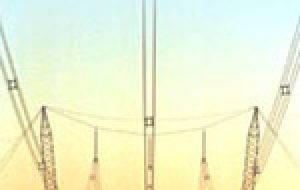MercoPress. South Atlantic News Agency
The Economist: energy Argentina's “biggest worry”

In five years Argentina's recovery from catastrophe has been “swift”, but the “biggest worry” now is energy and how long growth can continue, writes The Economist in its latest edition.
In December five years ago, crowds of Argentines angry at years of deflation and recession took to the streets of Buenos Aires and ousted the president, Fernando de la Rúa. Amid chaotic scenes, three further presidents came and went in ten days, one of them declaring the biggest-ever sovereign debt default, recalls The Economist. "In what a century ago was the world's seventh-richest country, the economy shrank by 15% in the year to March 2002, poverty rose from 38% to 56% and unemployment climbed to 21%". But to the surprise of many, recovery from this national catastrophe has been swift: since the nadir in March 2002, Argentina's GDP has grown by 45%, an average of 8.6% a year. However some serious doubts remain and the biggest worry is energy because of the price controls Argentines pay less than half as much for energy as their neighbors in South America's southern cone. "Consumption has risen but investment has collapsed. Argentina has depleted its gas reserves, from 15 years' worth of production to fewer than ten. Industry sources warn of blackouts in 2007 if weather conditions are unfavorable. Fear of blackouts has suppressed investment in energy-intensive businesses, such as steel, aluminum and petrochemicals". "Other bottlenecks will make it harder to sustain growth even at a more modest pace. The economy is still benefiting from private investment in infrastructure under Carlos Menem in the 1990s. Now roads are again becoming congested. There are some shortages of skilled workers, too", points out The Economist. The article also underlines that in the last five years at "a brutal cost, the collapse rebalanced the economy. A steep devaluation and the debt default turned deficits in the public finances and the current account into surpluses. Roberto Lavagna, the finance minister from 2002 to 2005, kept spending under control. The government relied mainly on monetary policy to boost demand. The central bank stopped the peso from appreciating, issuing pesos to buy up exporters' dollars. The government meets its fiscal targets partly by taxing farm exports, which are unusually profitable because of the artificially cheap peso and high world prices". But the obvious drawback has been inflation, which began to rise again in 2004 as spare capacity was used up. Mr Kirchner's response was to bully producers with "voluntary" price-freezes, outright price controls and export bans. However similar tactics caused several foreign investors, such as France's Suez and EDF, in privatized utilities to pack up and go. Nevertheless in spite of the boom, the question, says The Economist, as it has been for the past four years, is how long the growth can continue. After Mr Lavagna's sacking, fiscal policy has become looser. Provincial governments are already running a deficit. On the other hand, the central bank is quietly tightening monetary policy. Many assume that Mr Kirchner will relax price controls and allow the peso to appreciate after an election next October at which he is likely to seek a second term. Local economists fear the risk is that inflation might then take off, unless the authorities act to slow the economy but officials remain bullish. "What do we have beyond two more good years?" the foreign minister, Jorge Taiana, asks. "We have higher investment than ever before. We have an extended commodity boom. We have cancelled our debt. We have a favorable exchange rate. We have trade and budget surpluses. This growth can be sustained." At what pace remains to be seen, but it has become harder to doubt the overall argument, admits The Economist.




Top Comments
Disclaimer & comment rulesCommenting for this story is now closed.
If you have a Facebook account, become a fan and comment on our Facebook Page!